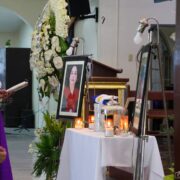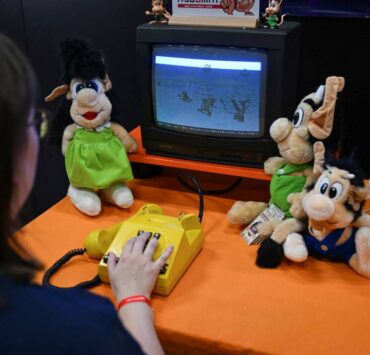
BEIRUT—Israel and the Lebanon-based group Hezbollah exchanged messages via intermediaries on Sunday in order to prevent further escalation following one of the biggest exchanges of fire between the two foes in 10 months, two diplomats told Reuters.
The main message was that both sides considered that Sunday’s intense exchange of bombardment was “done” and that neither side wanted a full-scale war, one diplomat said.
The diplomats spoke on condition they were not identified.
Both Israel and Hezbollah announced successes in their military objectives.
About 12 hours after Sunday’s most intense exchange of fire between Israel and the Iran-backed fighters, Hezbollah leader Sayyed Hassan Nasrallah said in a televised address that its attack had been carried out “as planned.”
He said the group’s main target was a military intelligence base about 110 kilometers inside Israeli territory—the deepest attack yet and just 1.5 km north of Tel Aviv, adding his group intentionally refrained from targeting civilians or public infrastructure, including Ben Gurion Airport.
A secondary target, said Nasrallah, was Ein Shemer, a military airport used by Israeli drones.
Nasrallah said that his group would assess the impact of its attack before determining whether it would carry out further military operations to avenge a slain commander.
‘Distracting’ Iron Dome
Hezbollah fighters launched a volley of 320 Katyusha rockets to distract Israel’s Iron Dome defenses before sending attack drones, he said. They included drones fired from the eastern Beqaa Valley, he said. None of the drone or rocket launchers were damaged in Israel’s preemptive strikes, he said.
News footage from early Sunday showed dozens of interceptor rockets being launched above the Upper Galilee in northern Israel.
A photographer saw a Hezbollah drone exploding into a huge fireball as it was intercepted by the Israeli Air Force.
Israel said it had thwarted a major attack by launching air strikes into Lebanon on Sunday, noting it destroyed “thousands” of Hezbollah rocket launchers.
The result was perhaps the biggest exchange of fire in 10 months of a war which began with a Hamas attack launched from Gaza and has triggered both new violence on the Lebanon-Israel border and fears of a broader conflagration in the Middle East.
The Israeli military said around 100 of its fighter jets had struck more than 270 targets, “90 percent” of which “were short-range rockets aimed at northern Israel.”
Reuters, the news and media division of Thomson Reuters, is the world’s largest multimedia news provider, reaching billions of people worldwide every day. Reuters provides business, financial, national and international news to professionals via desktop terminals, the world's media organizations, industry events and directly to consumers.
AFP is one of the world's three major news agencies, and the only European one. Its mission is to provide rapid, comprehensive, impartial and verified coverage of the news and issues that shape our daily lives.

















